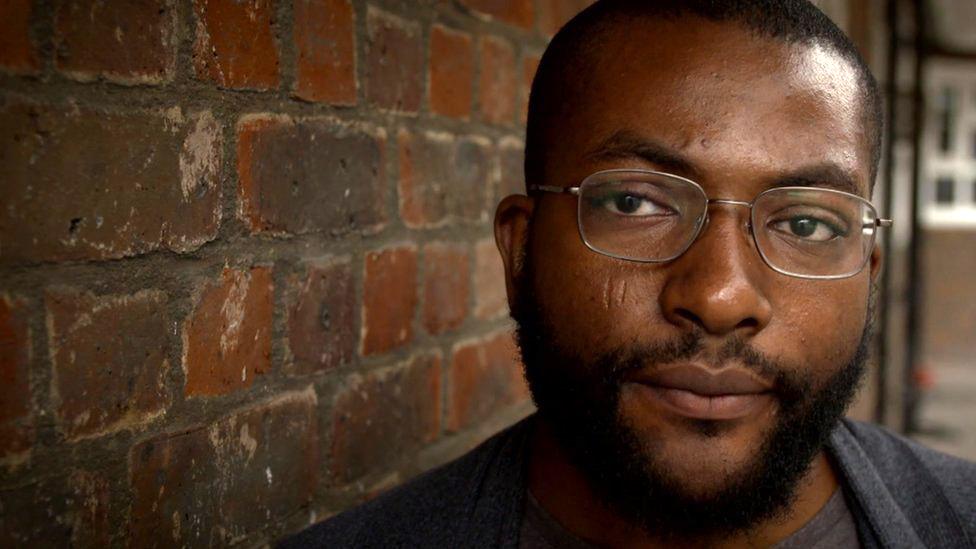'Why UK Asians need to talk more about suicide'
- Published
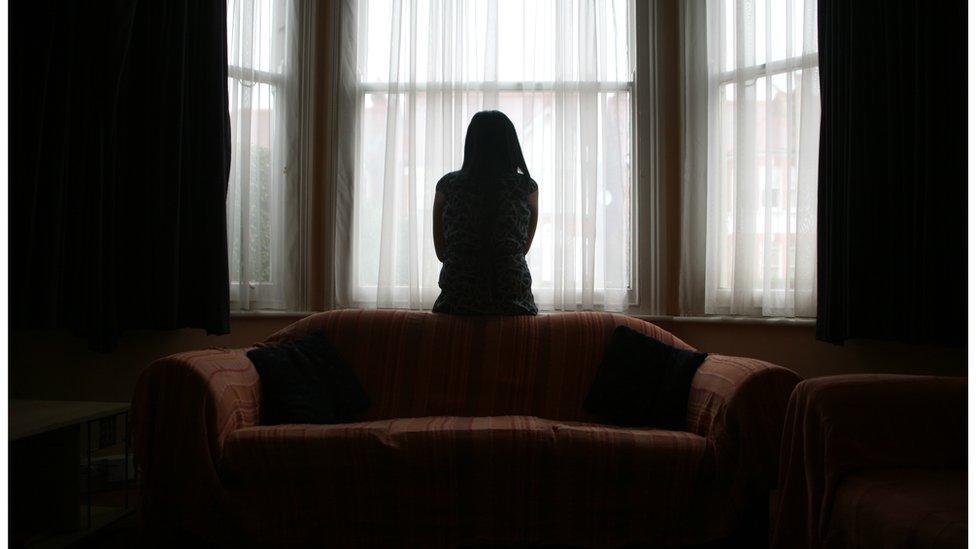
I was just 12 at the time. I remember hearing a scream from the kitchen while something musical was blaring out of the television.
Rushing to see what had happened, I found my mother clutching the phone with both hands and crouched on the floor.
"Your masi's (Aunty) gone," she said.
Tears and the visceral grief that is so familiar to those of Asian heritage followed. My head flooded with questions: Why? how?
But what came next was a sickening blow. We quickly learnt that she had taken her own life.
I spent the following months and years trying to figure out why she would do such a thing. She must have desperately needed an escape route - a way out of her misery.
In 2016, 1,457 women in the UK took their own lives but it is not clear how many of them were of South Asian heritage.
But what we do know is that people of this background struggle to be open about their mental health.
Figures from the NHS show that a white person is two times more likely to seek help than a person of black or Asian ethnicity. So one possible argument: If you don't get help, how do you battle those poisonous thoughts?
'Clash of East and West'
Professor Dinesh Bhugra, who specialises in mental health at King's College London, said there was no doubt suicide remained a problem within the demographic.
"We know that rates of attempted suicide among South Asian women are two-and-a-half times more than white women, and the 18-to-24 age group is particularly vulnerable," he says.
"A lot of this is down to cultural conflict.
"Having to hold down a professional job and then to come home and cook and clean - this clash of East and West can be difficult to cope with."
I've often heard how trying to adhere to traditions projected by elders in the community can cause distress among those who are more in tune with British life.
Not wanting to embarrass family or cause them any shame puts them under even more pressure.
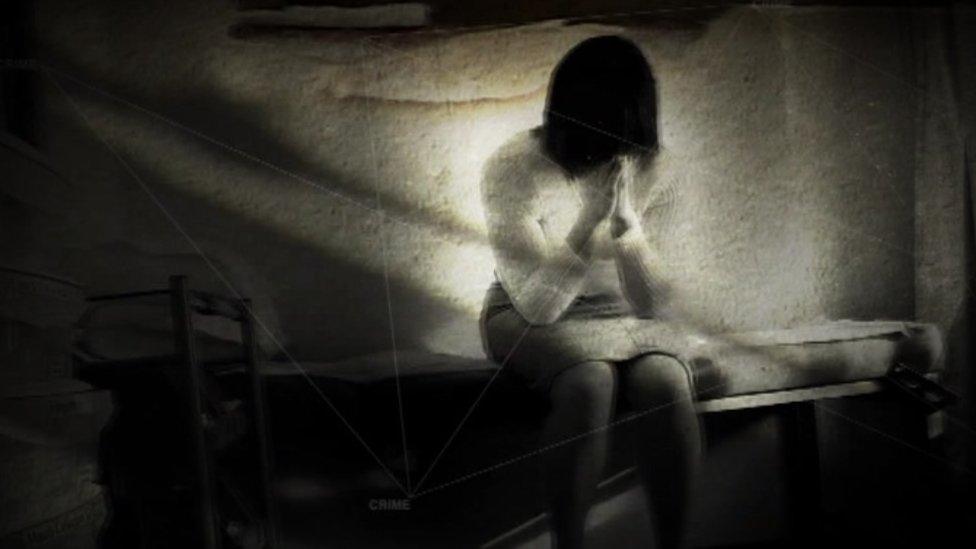
The conservative attitudes that still hold sway among older generations and the sense they sometimes feel of "losing" British born and educated, perhaps more liberal, offspring to a different culture is widely discussed.
Marcel Vige, head of equalities and improvement at the mental health charity Mind, says their evidence paints a similar picture.
"People from South Asian communities often tell us the strong sense of community and importance placed on family can be a very positive thing for their mental health," he says.
"But for many people, the need to preserve the family's reputation and status in such close-knit environments can lead them to remain silent about their own feelings.
"Previous research suggests that pushing those feelings down can lead to increased worry and can contribute to the disproportionately higher rates of self-harm within South Asian women."
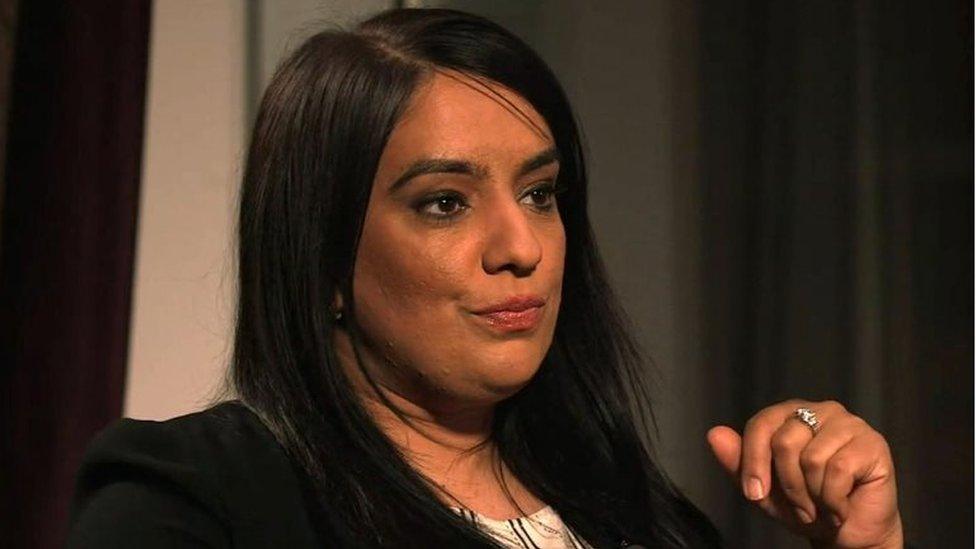
Naz Shah MP says the problem of suicide in South Asian communities is "getting worse"
So what can be done to tackle the problem of suicide and shame among those of South Asian heritage?
The Labour MP for Bradford West, Naz Shah, believes South Asian cultures remain largely oblivious to mental health problems.
"It [suicide] is absolutely an issue and it's getting worse," she says.
"There isn't even a word for depression in some South Asian languages and a whole heap of work needs to be done to raise awareness of these issues so people are not ashamed to get help."
Rahema, a 21-year-old from the East Midlands, agrees. She has battled suicidal thoughts all her adult life after suffering bouts of intense depression.
She says: "It needs someone famous who's Asian to say, 'Hey it's ok to feel sad and depressed because it happened to me and you can tell people about it without being judged.'
"That would really help me. Perhaps my mum and dad, and people of their generation, could listen more as well."
A couple of months ago, my mother called to tell me a British Indian girl I used to play with as a child had taken her own life.
I felt numb, and the confusion that infiltrated my head during my aunt's death, came rushing back like an unwelcome visitor.
Surely it could have been prevented?
It would be wrong to say somebody is at fault here - after all blame is often the very thing that leads these lives to be wasted.
The need to talk about your feelings and seek proper medical help seems the real solution to stop more families from suffering.

For support and more information on emotional distress, click here or call the BBC Action Line for free, at any time, on 0800 066 066.
Follow Sima on Twitter @sima_kotecha, external
- Published16 November 2017
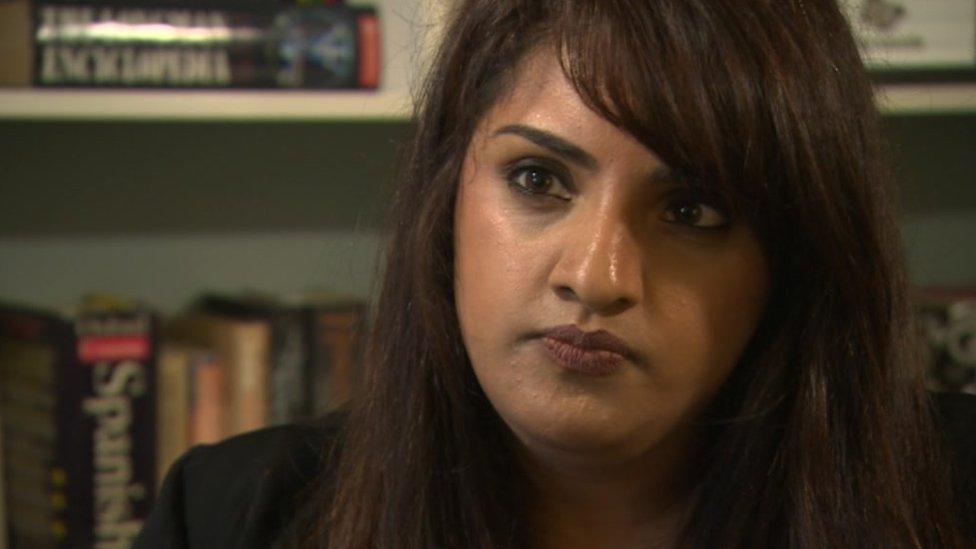
- Published5 July 2017
